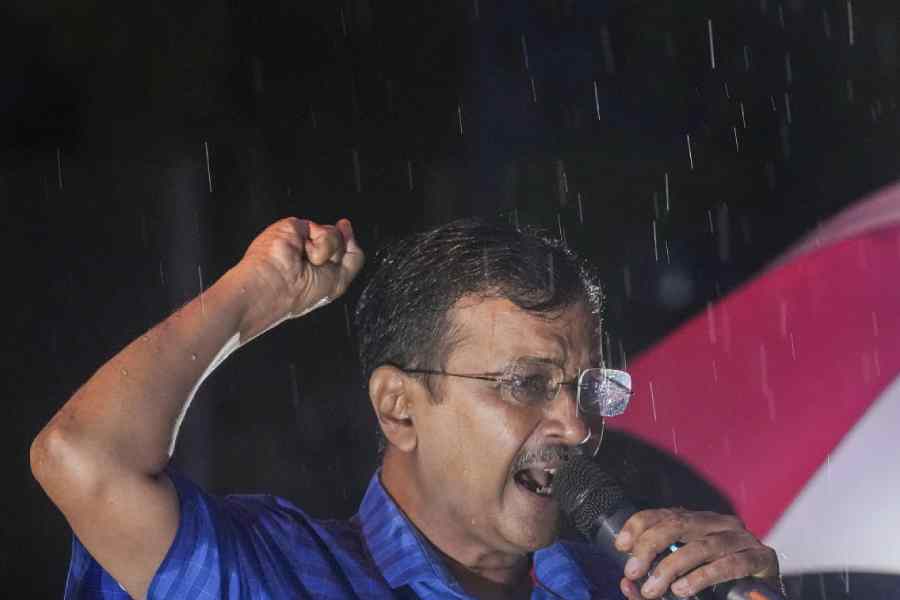The Supreme Court on Friday censured the CBI as a “caged parrot” for a second time in a decade while suggesting its June arrest of Delhi chief minister Arvind Kejriwal was just a ploy to “frustrate” the bail awarded to him days earlier in an ED case.
While the two-judge bench on Friday granted Kejriwal bail in the CBI case, too, the rebuke to the agency came in a separate judgment written by Justice Ujjwal Bhuyan, who concurred with Justice Surya Kant on the award of bail but differed with his decision to uphold the arrest.
“In a functional democracy governed by the rule of law, perception matters. Like Caesar’s wife, an investigating agency must be above board,” Justice Bhuyan wrote.
“Not so long ago, this Court had castigated the CBI comparing it to a caged parrot. It is imperative that (the) CBI dispel the notion of it being a caged parrot. Rather, the perception should be that of an uncaged parrot.”
Justice Bhuyan underlined that the CBI had on August 17, 2022, registered a corruption case relating to the Delhi government’s excise policy and questioned Kejriwal in April 2023 but arrested him only on June 26 this year.
This, only after a special judge had granted bail to Kejriwal — arrested by the ED in March this year in a parallel case relating to the excise policy — on June 20.
“For 22 months, CBI does not arrest the appellant but after the learned Special Judge grants regular bail to the appellant in the ED case, CBI seeks his custody. In the circumstances, a view may be taken that such an arrest by the CBI was perhaps only to frustrate the bail granted to the appellant in the ED case,” Justice Bhuyan said.
“When the CBI did not feel the necessity to arrest the appellant for 22 long months, I fail to understand the great hurry and urgency on the part of the CBI to arrest the appellant when he was on the cusp of release in the ED case.”
While the Opposition had slammed Kejriwal’s arrest by the ED, which came weeks before the general election, as politically motivated, his arrest by the CBI had intensified the allegation.
On Friday, senior Aam Aadmi Party leader Manish Sisodia said the apex court’s comments were a “tight slap in the face” for the BJP for “misusing the agencies”.
The previous reference to the CBI as a “caged parrot” had come in observations that a Supreme Court bench headed by Justice R.M. Lodha had made in 2013 in a coal-block allocation case during UPA II rule.
“I am of the unhesitant view that the belated arrest of the appellant by the CBI is unjustified and the continued incarceration of the appellant in the CBI case that followed such arrest has become untenable,” Justice Bhuyan observed.
He underlined that “only after the learned Special Judge granted regular bail to the appellant (Kejriwal) in the ED case on 20.06.2024 (which was stayed by the High Court on 21.06.2024 on oral mentioning) that CBI became active and sought for custody of the appellant which was granted by the learned Special Judge on 26.06.2024”.
“Even on the date of his arrest by the CBI on 26.06.2024, (the) appellant was not named as an accused by the CBI. Only in the last chargesheet filed by the CBI on 29.07.2024, appellant has been named as an accused,” he noted.
Justice Bhuyan added that the arrest could not be justified merely on the ground that Kejriwal had not replied to the CBI’s questions. He said that under Article 20(3) of the Constitution, an accused is entitled to remain silent during interrogation.
An accused has the right to remain silent and cannot be compelled to make inculpatory statements against himself or herself, Justice Bhuyan said.
“Power to arrest is one thing but the need to arrest is altogether a different thing,” he added.










